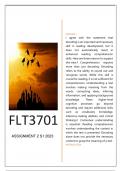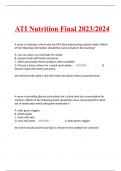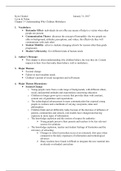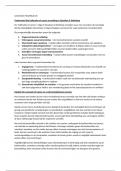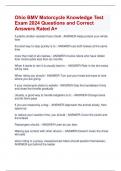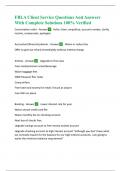Other
FLT3701 ASSIGNMENT 2 S1 2023
- Institution
- University Of South Africa (Unisa)
This comprehensive document provides a wealth of valuable information, offering a plethora of well-crafted answers that are not only readily accessible but also presented in a concise yet thorough manner. Each answer within this document has been carefully elucidated, ensuring absolute clarity and ...
[Show more]
